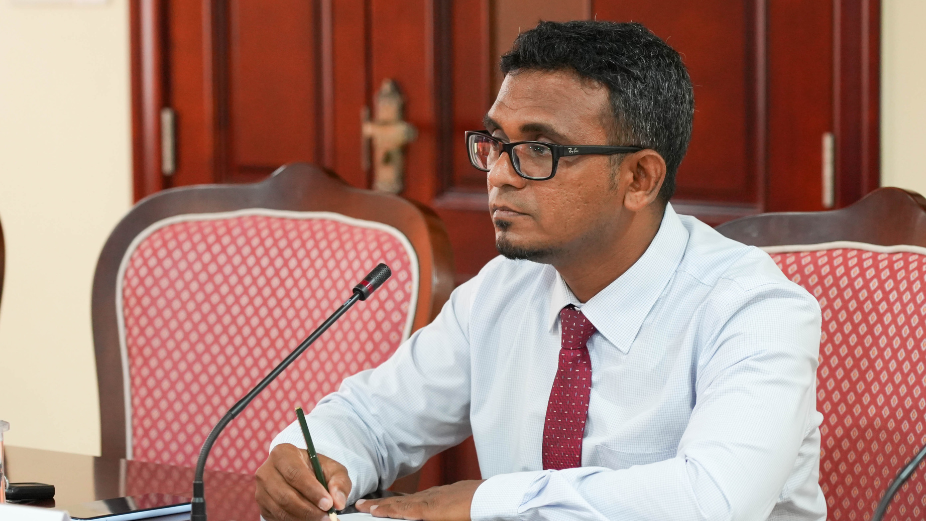
Ahmed Munawar, the Governor-to-be of the Maldives Monetary Authority, emphasised the critical need for austerity measures to address the nation’s economic challenges during his address to the Parliament’s Public Accounts Committee on Monday.
Munawar, nominated by President Dr. Mohamed Muizzu as the successor to Ali Hashim, who was dismissed following parliamentary recommendations, outlined his economic strategy during the committee’s interview. He stressed that the compact nature of the banking sector is a significant barrier to foreign currency retention within the Maldivian economy.
Munawar identified the fiscal strength of local banks as a key issue, noting that the current banking sector structure prevents these institutions from providing loans for resort development projects. He stated that expanding the banking sector will be a priority in his new role.
Addressing the broader macro-economic challenges facing the Maldives, Munawar highlighted the decline in tourism receipts and the substantial MVR 8 billion overdraft from public accounts as major concerns. He also pointed out that MVR 6 billion of the printed money remains with commercial banks, exacerbating currency exchange issues.
Munawar explained that the disparity between the Maldivian Rufiyaa circulating in the economy and the available US dollars drives up black market exchange rates. He proposed reducing state expenditure to align with earnings, recalling that debt servicing consumed eight percent of the state budget in 2017, a figure that has since increased to between 11 and 12 percent.
Munawar underscored the necessity of redirecting the majority of dollar revenue to repay external loans, warning that without expanding the currency reserve, eliminating black market exchange rates would be difficult.
Despite these challenges, Munawar praised the efforts of several state-owned enterprises in diversifying their business activities. He called for exploring ways to retain foreign currency revenue from tourism within local banks, emphasising the Maldives Monetary Authority’s pivotal role in this endeavour.
Munawar asserted that legal reforms are essential for better monitoring of dollar circulation within the Maldivian economy and identifying parties involved in these transactions.
The urgency of addressing foreign currency issues in the Maldives has been highlighted by recent trends, with most foreign currency earnings diverted to service external debts. The World Bank has also urged the Maldives to take prompt measures to address its debt-related issues.
In the black market, the US dollar is currently exchanged at over MVR 18 per dollar, reflecting the severity of the foreign currency crisis.
Following Munawar’s interview, Parliament Deputy Speaker Ahmed Nazim announced that the Governor nominee received an average score of 70 marks. Nazim proposed recommending Munawar’s name to the President as the next Governor, a submission that was unanimously approved by the Public Accounts Committee on Monday.
As Munawar prepares to take on his new role, his proposed strategies of austerity measures and banking sector expansion will be closely watched as potential solutions to the Maldives’ ongoing economic challenges.












